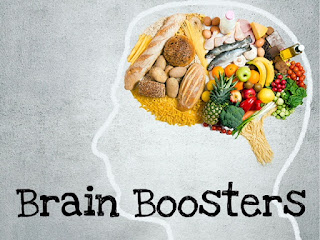Snoring
When asked if they snore at night, most people say they don’t…and then the spouse pipes in “YES!!! Loud enough to wake the neighbors”. Snoring is a natural occurrence – something that happens when you can’t move air freely through your nose and throat during sleep. Plenty of people are the victim or the culprit of sawing logs all night long.Just about everyone snores occasionally, and it’s usually not something to worry about. But if you regularly snore at night, it can disrupt the quality of your sleep—leading to daytime fatigue, irritability, and increased health problems. Snoring can lead to irritability in both the snorer and the one lying awake because of the snoring. It has been the bane of many a happy marriage.
Snoring and sleep apnea are NOT the same thing.
Sleep apnea is a potentially life-threatening condition that should receive medical attention. Sleep apnea is typically caused by a breathing obstruction, which awakens the sleeper, at which point the person begins breathing again. Normal snoring usually does not affect the quality of sleep as much as sleep apnea.
Common causes of snoring:
- Aging- As you reach middle age and beyond, your throat becomes narrower and the muscle tone in your throat decreases.
- Being overweight or not in shape- Fatty tissue and poor muscle tone contribute to snoring. Even if you’re not overweight in general, carrying excess weight just around your neck or throat can cause snoring.
- The way you’re built- Men have narrower air passages than women and are more likely to snore…though women can still pack a punch !! A narrow throat, a cleft palate, enlarged adenoids, and other physical attributes that contribute to snoring are often hereditary.
- Nasal and sinus problems- Blocked airways or a stuffy nose make inhalation difficult and create a vacuum in the throat, leading to snoring.
- Alcohol, smoking, certain medications- These can increase muscle relaxation leading to more snoring.
- Sleep posture- Sleeping flat on your back causes the flesh of your throat to relax and block the airway.
- You snore loudly and heavily and are tired during the day.
- You stop breathing, you gasp or choke during sleep.
- You fall asleep at inappropriate times, such as during a conversation or a meal or 5 minutes after you get into your car…and you are driving!!
- Side sleeping: If your snoring problem is minor, then just changing your sleep position might do the trick.
- Using SaCha’s TheraSpice Hot Compress: Simply warm the compress and keep it next to your pillow at bedtime. The herbs and spices in the compress prevent nasal congestion. Check our website www.goodhealthalways.in for more details
- Drinking ajwain pani: Digestion plays a big role in our sleep patterns and indigestion can cause snoring. Eating large meals or having dairy or soy milk at bedtime can attribute to snoring. Drinking a glass of ajwain pani or a mug of ajwain tea after dinner can prevent snoring brought about by indigestion.
- Ginger steam inhalation: The sinuses can obstruct the airways, causing the mouth to open and the uvula, to vibrate and create the annoyance of an all-night snore. A ginger stem inhalation will help prevent this.
- Keeping your bedroom air moist: Dry air can irritate membranes in the nose and throat, so if swollen nasal tissues are the problem, a humidifier may help.
- Losing weight: Losing even a little bit of weight can reduce fatty tissue in the back of the throat and decrease, or even stop, snoring.
- Quitting cigarette smoking: If you smoke, your chances of snoring are high. Smoking irritates the membranes in the nose and throat which can block the airways and cause snoring. While quitting is easier said than done, it can bring quick snoring relief.
- Avoiding alcohol, sleeping pills, and sedatives: They relax the muscles in the throat and interfere with breathing.
So if you snore (be sure to ask your spouse/bedpartner/roommate…if you haven’t been informed already via a soft nudge or a hard kick) please do something to stop it…to help yourself and your partner live happily ever after
Stay blessed with good health…always!!!
Warm regards,
Charmaine D’Souza



